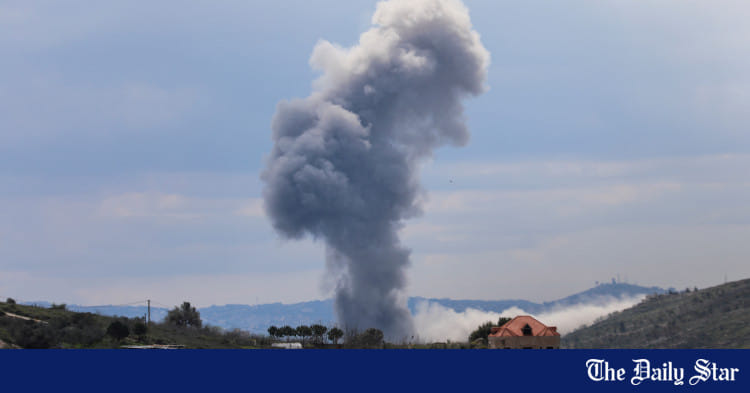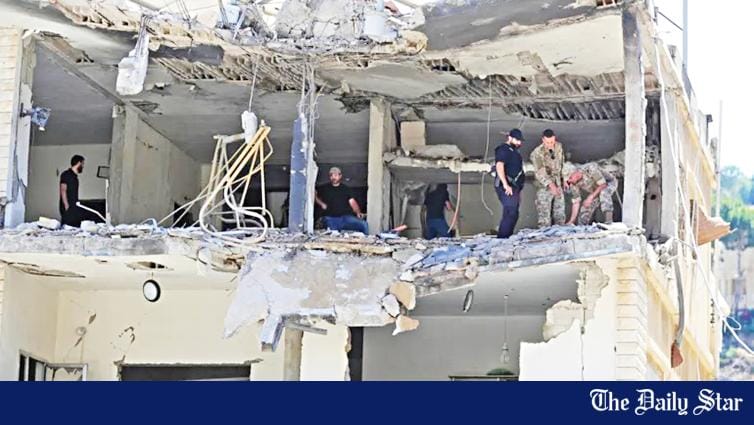Saif
Senior Member
- Messages
- 14,830
- Reaction score
- 7,674
- Origin

- Residence

- Axis Group

- Copy to clipboard
- Thread starter
- #161

Israeli strike kills one in south Lebanon
An Israeli strike targeting a vehicle killed one person in south Lebanon on Saturday, the Lebanese health ministry said, according to state media.
 www.newagebd.net
www.newagebd.net
Israeli strike kills one in south Lebanon
Agence France-Presse . Beirut, Lebanon 15 March, 2025, 22:21
An Israeli strike targeting a vehicle killed one person in south Lebanon on Saturday, the Lebanese health ministry said, according to state media.
‘A strike by the Israeli enemy on a car in the town of Burj al-Muluk [near the Israeli border] led to the death of one citizen,’ the ministry’s emergency unit was quoted as saying by state news agency NNA.
The Israeli military later said it ‘struck a Hezbollah terrorist who took part in terrorist activity in the area of Kfarkela in southern Lebanon’.
A November 27 truce largely halted more than a year of hostilities between Hezbollah and Israel, including two months of full-blown war in which Israel sent in ground troops.
Israel has continued to carry out periodic strikes on Lebanese territory since the agreement took effect.
On Tuesday, the Israeli military said it carried out an air strike in southern Lebanon that killed a senior Hezbollah militant who was reportedly responsible for a drone and rocket arsenal.
It came as Lebanon received four detainees who had been taken to Israel during fighting with Hezbollah, with a fifth detainee, a soldier, released on Thursday after he was taken earlier this month.
Israel had been due to withdraw from Lebanon by February 18 after missing a January deadline, but it has kept troops at five locations it deems ‘strategic’.
The ceasefire also required Hezbollah to pull back north of the Litani River, about 30 kilometres from the border, and to dismantle any remaining military infrastructure in the south.
Agence France-Presse . Beirut, Lebanon 15 March, 2025, 22:21
An Israeli strike targeting a vehicle killed one person in south Lebanon on Saturday, the Lebanese health ministry said, according to state media.
‘A strike by the Israeli enemy on a car in the town of Burj al-Muluk [near the Israeli border] led to the death of one citizen,’ the ministry’s emergency unit was quoted as saying by state news agency NNA.
The Israeli military later said it ‘struck a Hezbollah terrorist who took part in terrorist activity in the area of Kfarkela in southern Lebanon’.
A November 27 truce largely halted more than a year of hostilities between Hezbollah and Israel, including two months of full-blown war in which Israel sent in ground troops.
Israel has continued to carry out periodic strikes on Lebanese territory since the agreement took effect.
On Tuesday, the Israeli military said it carried out an air strike in southern Lebanon that killed a senior Hezbollah militant who was reportedly responsible for a drone and rocket arsenal.
It came as Lebanon received four detainees who had been taken to Israel during fighting with Hezbollah, with a fifth detainee, a soldier, released on Thursday after he was taken earlier this month.
Israel had been due to withdraw from Lebanon by February 18 after missing a January deadline, but it has kept troops at five locations it deems ‘strategic’.
The ceasefire also required Hezbollah to pull back north of the Litani River, about 30 kilometres from the border, and to dismantle any remaining military infrastructure in the south.

 War Archive
War Archive












